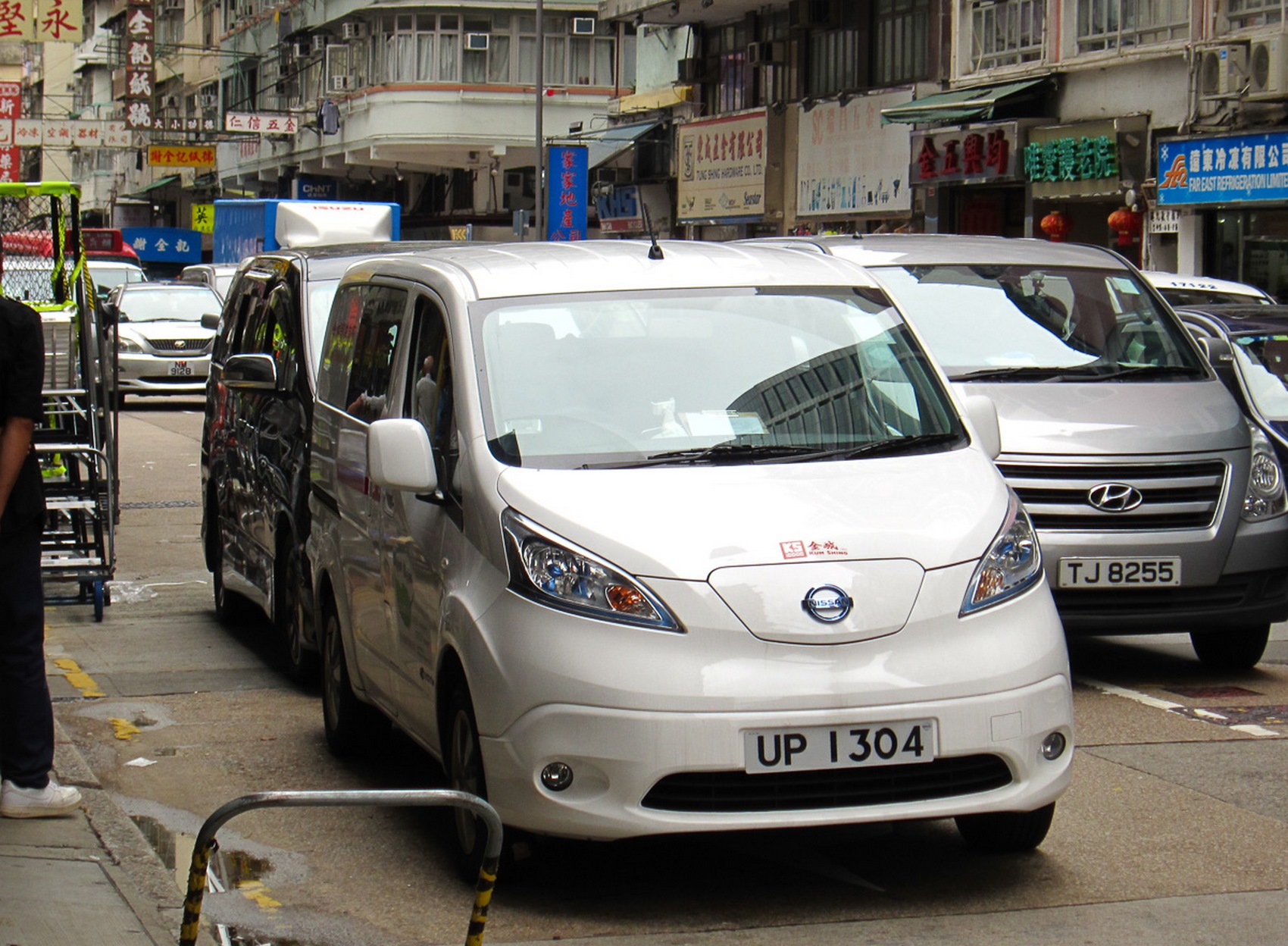HK requires electric vehicles to have an audible alert

Electric cars are a wonderful invention, reducing pollution and the demand for oil. They are also killers.
The main problem is that they are so quiet. Blind people, animals and those trusting souls who walk through car parks while checking their mobile phones, all rely on the noise of an approaching car to warn them of its existence.

Electric and hybrid vehicles, at low speeds, are virtually silent, or at least inaudible over normal levels of noise around them.
People have been complaining about this since the 2000s, when those who follow these things noticed an increase in accidents involving blind pedestrians. Eventually blind people noticed it too, and in Europe there were heartrending stories of blind folk stepping unawares in front of oncoming electric vehicles to their doom. In the UK, where the difference between god and dog is just a matter of spelling, heartrending stories told of guide dogs obediently walking into the path of a vehicle when instructed to do so by an owner who did not realise anything was coming.
The earliest mention of this that I can find in Hong Kong was a piece in the South China Morning Post in 2016, reporting that the blind community had drawn attention to the problem and called for electric vehicles to be fitted with noise-making devices.
See also: Disability should not be a barrier in Hong Kong, unless society makes it one
The following year there was a question in the Legislative Council (LegCo) about the matter from Kenneth Lau, who occupied and still occupies the Heung Yee Kuk’s hereditary LegCo seat.
The then-transport secretary, Anthony Cheung, replied that “the Government has on the one hand relayed the wishes of visually impaired persons to local suppliers of electric vehicles, requesting them to proactively introduce suitable sound alerting systems on their electric vehicle models to ensure the safety of road users. On the other hand, the Government is closely monitoring the development of relevant international standards.”
We may well doubt whether the wishes of visually impaired people cut much ice with local suppliers of electric vehicles, but relevant international standards have now materialised in many other places.


Accordingly, in 2021 the Transport Department announced that it would amend the relevant regulations. All new electric or hybrid vehicles are now required to have what is known technically as an Acoustic Vehicle Alert System or AVAS.
This is not a particularly onerous requirement because it coincides with similar regulations applicable in Europe and the US. Electric cars should now be emitting artificial noises at speeds up to 10 kph – above which the noise of tyres on road is supposed to be enough – and also when reversing.
This requirement has been surprisingly controversial on the websites where drivers gather and share gripes. Some of them argue that the rule is unnecessary and point out that very luxurious petrol cars are as quiet as electrics already, which is no doubt a great consolation if you are run over by one.
However according to the latest research the situation is worse than you might think. The Guardian reported last week on a survey which covered 32 billion miles of battery-powered motoring and 3 trillion miles of the petrol-powered stuff. The conclusion was that if you were driving an electric vehicle in an urban environment you were three times as likely to hit a pedestrian as petrol-propelled drivers were.
The researchers carefully noted that the absence of sound might not be the complete explanation for this; electric drivers tend to be younger, and hence more accident-prone. Also a battery adds considerably to the weight of a car, and so to the distance it takes to stop. In addition, electric vehicles typically accelerate faster.


Still, the case for noise-making machinery seems to be pretty persuasive. Which leaves one question: why have I yet to hear any artificial noise coming from an electric or hybrid car in Hong Kong? I live in a fairly up-market area, where Teslas are popular and are regularly replaced. I have several times heard an electronic wailing noise which indicated that one was reversing. But when going forward they are still silently creeping up on me in car parks.
At this point we enter the realm of speculation. Some cars have an on-off switch for the AVAS. It is supposed to switch itself on automatically when you start the car but if you find the noise annoying, as some people do, you can switch it off immediately.
A more worrying possibility is that vendors are offering to quietly disable the system if owners do not want it. In the US, they are not allowed an on-off switch. Would people be so irresponsible as to post online videos on how to disable this safety system? You bet they would.
I do have some personal history on this. For some years I drove a Prius, before all this had come up, and I did occasionally have hairy moments in which people who had not heard my whispering approach tried to throw themselves under my wheels. AVAS systems were not yet offered. A pity.
But now they are. If your car has one, please for goodness sake use it.
Type of Story: Opinion
Advocates for ideas and draws conclusions based on the interpretation of facts and data.
Support HKFP | Policies & Ethics | Error/typo? | Contact Us | Newsletter | Transparency & Annual Report | Apps
Help safeguard press freedom & keep HKFP free for all readers by supporting our team
| HKFP is an impartial platform & does not necessarily share the views of opinion writers or advertisers. HKFP presents a diversity of views & regularly invites figures across the political spectrum to write for us. Press freedom is guaranteed under the Basic Law, security law, Bill of Rights and Chinese constitution. Opinion pieces aim to point out errors or defects in the government, law or policies, or aim to suggest ideas or alterations via legal means without an intention of hatred, discontent or hostility against the authorities or other communities. |






